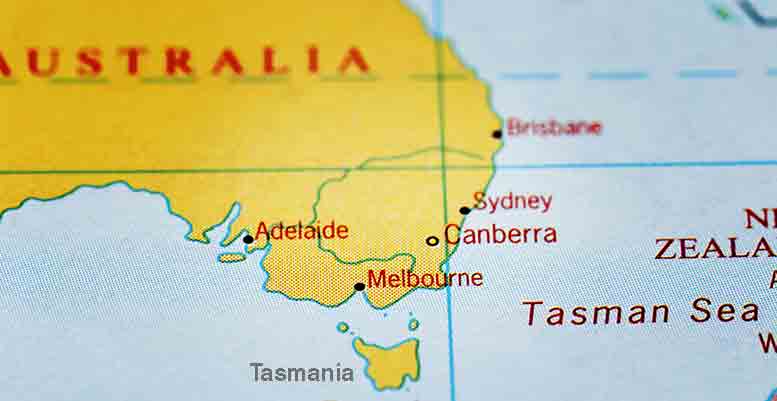Tasmanian hemp crops that come in over 1.0% THC must be destroyed under a draft bill intended to update provisions in the Australian state’s hemp law.
The Secretary of the state’s Department of Natural Resources and Environment (NRE) would order growers to destroy non-compliant crops. Those who fail to follow such directives would have their crops seized by the government for destruction at the cost of the grower, and could suffer fines under the measure, the Draft Industrial Hemp Amendment Bill 2023.
The NRE would also have the discretion to authorize alternative action “in a case where the Secretary is satisfied that the (non-compliant) crop was grown in good faith,” under language in the proposed law.
1% THC limit
Under Tasmania’s original 2015 hemp bill, industrial hemp can be grown only from certified hemp varieties that typically express a maximum 0.5% THC, but the maximum limit in harvested crops is a full 1.0% – which essentially marks the dividing line between hemp and marijuana. All Tasmanian hemp crops are tested for THC content.
Drawing a clearer distinction between marijuana and hemp is one of the main goals of the amendment, which comes more than one year after NRE first agreed to consider changes advocated by stakeholders.
The existing law authorizes the NRE to grant licenses for the supply, cultivation, manufacture and research of hemp grown for cultivation seed, grain for food and fiber in Tasmania.
Bring in the cops
The state is now taking feedback on the amendment, which would modify the Industrial Hemp Act 2015 and the Industrial Hemp Amendment Regulations 2016, during a public consultation period that closes at the end of October.
Hemp cannabinoid production for CBD and other extracts is regulated by the federal Office of Drug Control.
Under another change, the NRE Secretary may call on police agencies “to assist with determining the suitability of (an) applicant” for a hemp license. “The Commissioner of Police must inquire into, and report to the Secretary on, any matter concerning the application for a license that the Secretary requests,” the amendment reads.
Research licenses
The bill would also adjust language regarding the licensing of research projects, by renaming “special license” to “special research license” to better reflect the specific research purpose of these permits, which are granted for studies into hemp varieties that have more than 1.0% THC.
To be eligible for research licenses, applicants must demonstrate that their projects will be based on scientifically valid research methods, must identify the potential benefits to the hemp industry, and ensure that appropriate safety and security measures will be put in place to prevent theft or loss.
The amending measure would also:
- Shore up criteria for license applicants regarding their suitability to be licensees based on background checks. That language would align with similar criteria for poppy-growing licensees in Tasmania.
- Include police officers under the definition of “inspectors” under the original hemp law, to enable police officers to conduct investigations without needing to be appointed by the Secretary of the DNR&E;
- Provide authorization for police officers to possess and supply hemp;
- Establish a licensing category for horticultural use to “enable hemp by-product to be better used in a circular economy” such as mulch or compost.
- Stakeholders said the changes will generally help producers take advantage of maturing markets, consumer interest in sustainable products, and changing consumer attitudes toward cannabis.
Read the full article here

